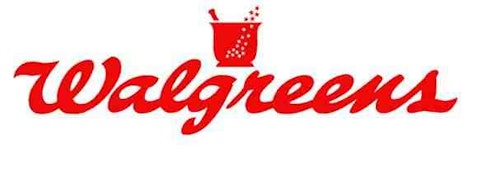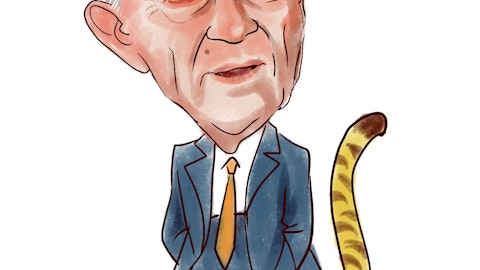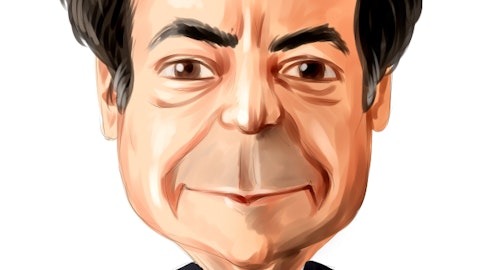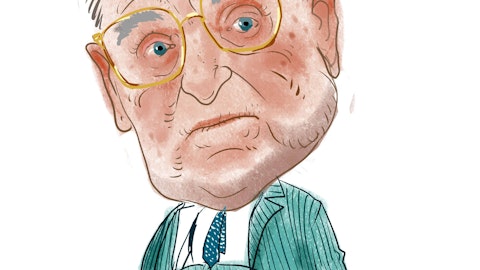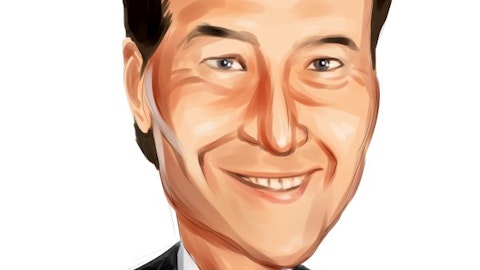Aggregate dividend payouts of the S&P 500 Index constituents have reached a decade high. Totaling $277.4 billion on a trailing-twelve-months basis or $29.92 per share, S&P 500 dividends are growing at an average annual rate of 15.5%, according to FactSet. This is a multi-decade high and almost three times faster than the average annualized dividend growth of the S&P 500 since 1970.
While many S&P 500 companies have seen strong dividend growth over the past year, some are increasing their dividends faster than other companies. Among the special group of S&P 500 Dividend Aristocrats, the Index constituents raising dividends for at least 25 consecutive years, there are five members that are yielding at least 2% and boosting their dividends at rates faster than the average for the overall S&P 500 Index. These five stocks have all the prerequisites to sustain their robust dividend growth in the future.
Walgreen Company (NYSE:WAG), the largest U.S. drugstore chain, has raised dividends for the past 37 consecutive years. This year, the company boosted its dividends by 22%, which compares to its average annualized dividend growth of 24% over the past five years. Walgreen Co.’s dividend yield is 3.0% and its payout ratio is 50%. The company recently reported poor first-quarter 2013 results, blaming its earlier standoff with Express Scripts Holding Company (NASDAQ:ESRX) for lost customers and revenues. However, recently, the company restored its relations with Express Scripts, and is trying to regain lost customers. For the long haul, the aging Baby Boom generation, increasing sales of higher-margin generics, and synergies from its Alliance Boot investment bode well for Walgreen Co.’s future profitability. As a result, analysts forecast the company’s long-term annualized EPS growth at about 13%. The stock is also a value play with a forward P/E of 10.6x, trading at a discount to its respective industry and main competitors. The stock was a new position in George Soros’ third-quarter portfolio.
Exxon Mobil Corporation (NYSE:XOM), the oil and natural gas giant, has raised dividends for 28 consecutive years. This year, the company hiked its dividend by 21%, more than double its rate of dividend growth over the past half-decade. Exxon Mobil yields 2.6% on a payout ratio of 24%. Given the company’s forecasted annualized long-term EPS growth of 6.3%, its below-industry dividend yield, and low payout ratio, the company is likely to continue increasing its dividend at growth rates faster than the average rate for the S&P 500 Index. The outlook for the industry and this energy behemoth is rosy as the shale oil and gas production boom is turning the U.S. into the world’s largest energy producer. Accumulating assets in the shale plays such as the Bakken Shale, Exxon Mobil is well positioned to capitalize on the energy output boom and, especially, on the higher industrial consumption of natural gas. The stock is trading at 11.9x its forward earnings versus 9.2x for its industry. Billionaires Stanley Druckenmiller, Ken Fisher, Cliff Asness, and D. E. Shaw are all bullish about this stock.
V.F. Corporation (NYSE:VFC), an apparel and footwear company, has raised dividends for the past 40 consecutive years. This year, the company boosted its dividend by 21%. This compares to its average annualized dividend growth of 6.3% over the past five years. V. F. Corporation’s dividend is currently yielding 2.3% on a payout ratio of 39%. The company generates large free cash flows, and is thus able to afford meaningful dividend increases in the future. V. F. Corporation has produced 12 straight quarterly earnings surprises and has raised its EPS guidance for this year. Analysts forecast the company’s long-term EPS growth at 10.5% annually. The stock has a free cash flow yield of 3.8%. Its shares are priced at 16.9x trailing and 14.1x forward earnings, with a PEG of 1.2. Fund manager Ric Dillon (Diamond Hill Capital—check out its top picks) is a buyer of this stock.
Target Corporation (NYSE:TGT), the second-largest discount retailer after Wal-Mart Stores, Inc. (NYSE:WMT), has increased dividends for the past 45 consecutive years. In 2012, Target raised its dividend by 20%, compared to the company’s annualized dividend growth of 20.5% over the past five years. Target is yielding 2.4% on a payout ratio of 32%. The company’s long-term EPS growth is forecast at a robust 12.4%, driven by the retailer’s expansion into Canada and strong organic growth in the U.S. The company’s same-store sales are forecasted to grow above the rate of growth of the U.S. economy, as the company expands its market shares and benefits from a greater focus on consumable products. The retailer’s low dividend payout ratio and robust EPS growth bode well for future dividend hikes. The company has a free cash flow yield of 5.3%. Trading at 12.7x its forward earnings, Target is priced at a discount to its respective industry. It also has below-industry price-to-book and price-to-cash flow ratios. Fund manager John A. Levin (Levin Capital Strategies) and billionaires Steven Cohen and Stanley Druckenmiller are bullish about this stock.
Stanley Black & Decker, Inc. (NYSE:SWK), a handheld and power tools company, has increased dividends for the past 45 consecutive years. In 2012, the company hiked its dividend by 19.5%. This compares with the average annualized dividend growth of 8.1% over the past five years. Currently, the company’s dividend is yielding 2.7% on a payout ratio of 59% of trailing earnings and 48% of free cash flow. The rebound in the housing market and aggressive costs cuts are expected to drive the company’s EPS growth, which is forecasted to average 14% per year for the next five years. The bottom-line growth will also be supported by the company’s plan to boost emerging market sales from the current 14% of total revenues to 20% by 2015 and 30% by 2020. Stanley Black & Decker has attractive valuation, with below-industry price-to-book and price-to-cash flow ratios. Its forward P/E of 12.6x is almost on par with its respective industry’s forward multiple. The stock is popular with Legg Mason Capital’s Bill Miller.
